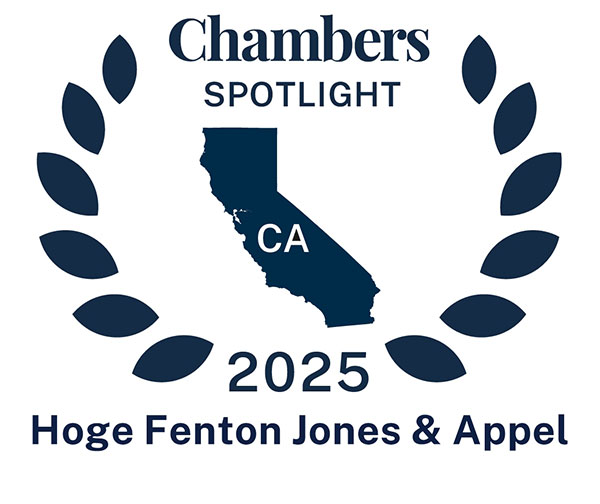California Becomes First State to Ban Natural Hairstyle Discrimination
By Hoge Fenton | 08.29.2019 | Firm Post

On July 3, 2019, California has become the first state in the nation to protect employees from racial discrimination based on their hairstyle (New York followed suit on July 12, 2019.) Governor Gavin Newsom signed the groundbreaking Senate Bill 188, which states that “hair discrimination targeting hairstyles associated with race is racial discrimination.” Senate Bill 188, or the Creating a Respectful and Open Workplace for Natural hair (“CROWN”) Act, amends both the Education Code and the Fair Employment and Housing Act and expands the definition of race to include “traits historically associated with race, including but not limited to, hair texture and protective hairstyles.” “Protective hairstyles” are defined to include braids, twists, and dreadlocks; afros are also protected (and have been the only hairstyle that was recognized as a basis of race discrimination prior to the enactment of this legislation).
This legislation addresses crucial bias toward natural Black hairstyles in both school and the workplace and allows employees, students, and applicants to wear their hair in whatever style they choose (so long as there is no legitimate business purpose for the prohibition, such as safety) without fear of being terminated, punished, or rejected from a position on the basis of their hairstyle. The Legislature specifically declared, among other things, that “the history of our nation is riddled with laws and societal norms that equated ‘blackness,’ and the associated physical traits, for example, dark skin, kinky and curly hair to a badge of inferiority, sometimes subject to separate and unequal treatment,” and “Professionalism was, and still is, closely linked to European features and mannerisms, which entails that those who do not naturally fall into Eurocentric norms must alter their appearances, sometimes drastically and permanently, in order to be deemed professional.” This legislation follows last year’s regulatory changes that broadened the definition of “national origin” (including, for example, protecting an American with a Spanish sounding last name or someone married to someone from another country of origin) and prohibited English only policies and signals a trend toward broadly defining what constitutes discrimination.
What does this mean for you as an employer? You may not implement purportedly race-neutral grooming policies that disparately impact persons of color (for example, banning dreadlocks). You may , however, implement grooming policies so long as they are valid, non-discriminatory, and do not disproportionately impact your employees of color (for example, you may require that all employees tie their hair back or wear a hair net for hygienic purposes). Discriminatory grooming policies now carry far more risk in the state of California. When in doubt, err on the side of caution. Our attorneys are available to review your employment policies with you.
This information is provided as an educational service by Hoge Fenton for clients and friends of the firm. This communique is an overview only, and should not be construed as legal advice or advice to take any specific action. Please be sure to consult a knowledgeable professional with assistance with your particular legal issue. Photo by Nicole Berro from Pexels.
For more information about the article or California employment law, please contact:
 |
 |
| Jenn Protas
Shareholder 408-947-2435 |
Ashlee Cherry
Attorney 408-947-2457 |











